Some of the famous Iranian scientists...
Avicenna (c. 980-1037) was a Persian Muslim polymath and the most important doctor and Islamic philosopher of his time. He was also an astronomer, chemist, Hafiz, logician, mathematician, poet, psychologist, scientist, Sheikh, soldier, statesman and theologian. He is also commonly known as Ibn Sina. Avicenna had very wise insights on the Islamic and Western religions. He lived in an environment with other very wise people, and he learned a lot from the conversations between his father and other scholars. He learned so much, that he outsmarted his teachers and many scholars. It was difficult for Avicenna to find a tutor to teach him.
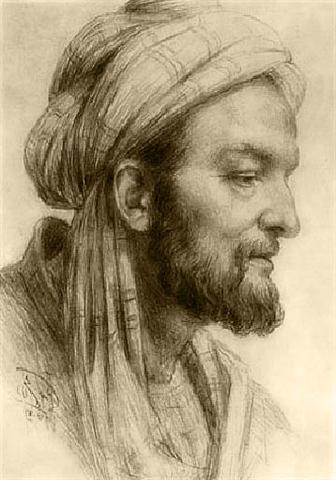
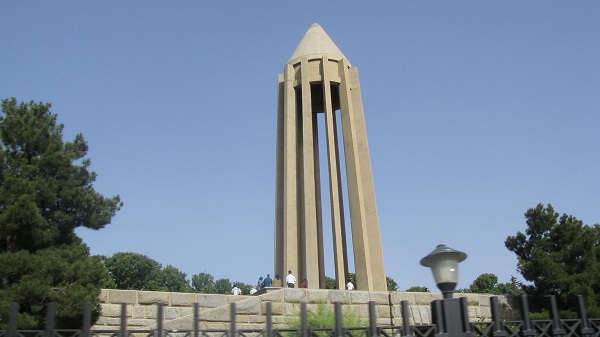
Omar Khayyam, (18 May 1048-4 December 1131) was a Persian polymath, philosopher, mathematician, astronomer and poet. He also wrote treatises on mechanics, geography, mineralogy, music, and Islamic theology. Born in Nishapur in North Eastern Iran, at a young age he moved to Samarkand and obtained his education there. Afterwards he moved to Bukhara and became established as one of the major mathematicians and astronomers of the medieval period. He is the author of one of the most important treatises on algebra written before modern times, the Treatise on Demonstration of Problems of Algebra, which includes a geometric method for solving cubic equations by intersecting a hyperbola with a circle. He contributed to a calar reform. His significance as a philosopher and teacher, and his few remaining philosophical works, have not received the same attention as his scientific and poetic writings. Al-Zamakhshari referred to him as &ldquothe philosopher of the world&rdquo. Many sources have testified that he taught for decades the philosophy of Avicenna in Nishapur where Khayyám was born and buried and where his mausoleum today remains a masterpiece of Iranian architecture visited by many people every year.
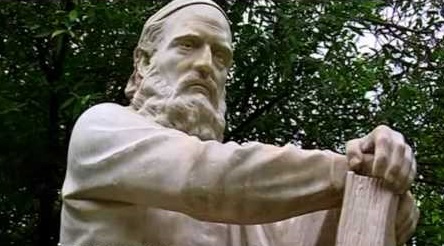
Outside Iran and Persian speaking countries, Khayyám has had an impact on literature and societies through the translation of his works and popularization by other scholars. The greatest such impact was in English-speaking countries the English scholar Thomas Hyde (1636-1703) was the first non-Persian to study him. The most influential of all was Edward FitzGerald (1809-83), who made Khayyám the most famous poet of the East in the West through his celebrated translation and adaptations of Khayyám's rather small number of quatrains (Persian: رباعیات) in the Rubaiyat of Omar Khayyam. Omar Khayyam died in 1131 and is buried in the Khayyam Garden at the mausoleum of Imamzadeh Mahruq in Nishapur. In 1963, the mausoleum of Omar Khayyam was constructed on the site by Hooshang Seyhoun.
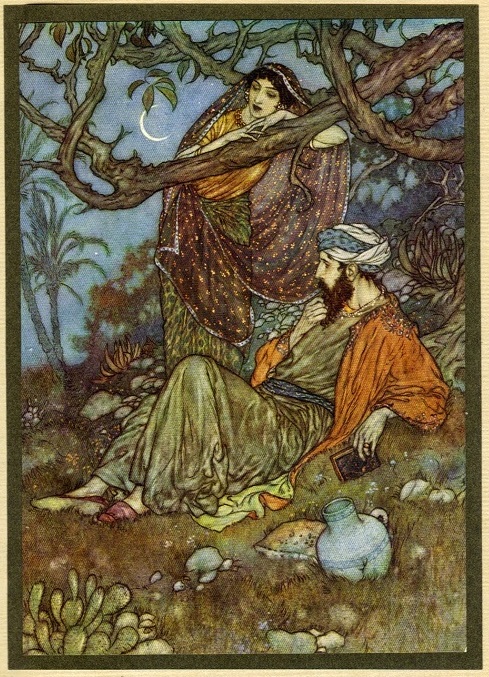
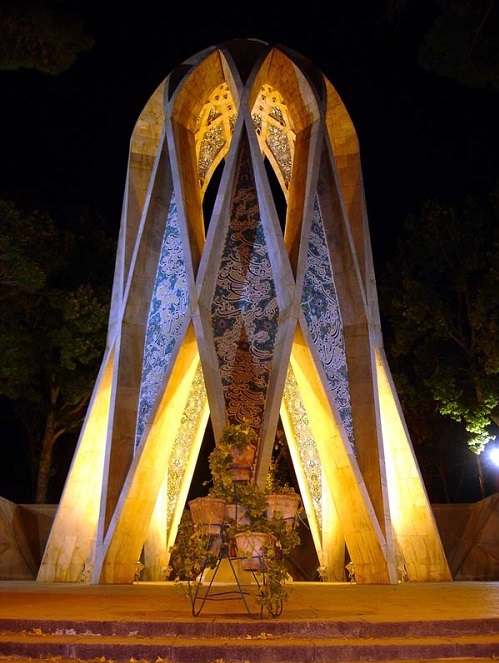
Muhammad ibn Zakariya al-Razi also known by his Latinized name Rhazes or Rasis) (854 CE-925 CE), was a Persian polymath, physician, alchemist and chemist, philosopher and important figure in the history of medicine. He is well known as the discoverer of alcohol and vitriol (sulfuric acid). A comprehensive thinker, Razi made fundamental and uring contributions to various fields of science, which he recorded in over 200 manuscripts, and is particularly remembered for numerous advances in medicine through his observations and discoveries. An early proponent of experimental medicine, he became a successful doctor he was appointed a court physician, and served as chief physician of Baghdad and Rey hospitals. He was among the first to use humorism to distinguish one contagious disease from another and has been described as a doctor's doctor, the father of pediatrics, and a pioneer of ophthalmology.
As a practicing physician, Razi wrote a pioneering book about smallpox and measles providing clinical acterization of the diseases. Through translation, his medical works and ideas became known among medieval European practitioners and profoundly influenced medical education in the Latin West. Some volumes of his work Al-Mansuri, namely "On Surgery" and "A General Book on Therapy", became part of the medical curriculum in Western universities. As a teacher of medicine, he attracted students of all backgrounds and interests and was said to be compassionate and devoted to the service of his patients, whether rich or poor. Edward Granville Browne considers him as "probably the greatest and most original of all the physicians, and one of the most prolific as an author.
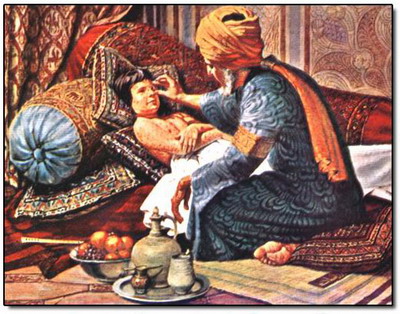
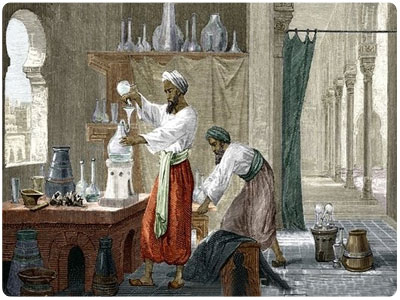
Abu al-Rayhan Muhammad ibn Ahmad al-Biruni (born 4/5 September 973 in Kath, Khwarezm, died 13 December 1048 in Ghazni) known as Alberonius in Latin and Al-Biruni in English, was a Persian Muslim scholar and polymath from the Khwarezm region. Al-Biruni is regarded as one of the greatest scholars of the medieval Islamic era and was well versed in physics, mathematics, astronomy, and natural sciences, and also distinguished himself as a historian, chronologist and linguist. He was conversant in Khwarezmian, Persian, Arabic, Sanskrit, and also knew Greek, Hebrew and Syriac. He spent a large part of his life in Ghazni in modern-day Afghanistan, capital of the Ghaznavid dynasty which was based in what is now central-eastern Afghanistan. In 1017 he traveled to the Indian subcontinent and became the most important interpreter of Indian science to the Islamic world. He is given the titles the "founder of Indology". He was an impartial writer on custom and creeds of various nations, and was given the title al-Ustadh ("The Master") for his remarkable description of early 11th-century India. He also made contributions to Earth sciences, and is regarded as the "father of geodesy" for his important contributions to that field, along with his significant contributions to geography.
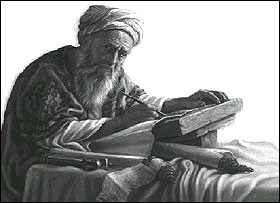
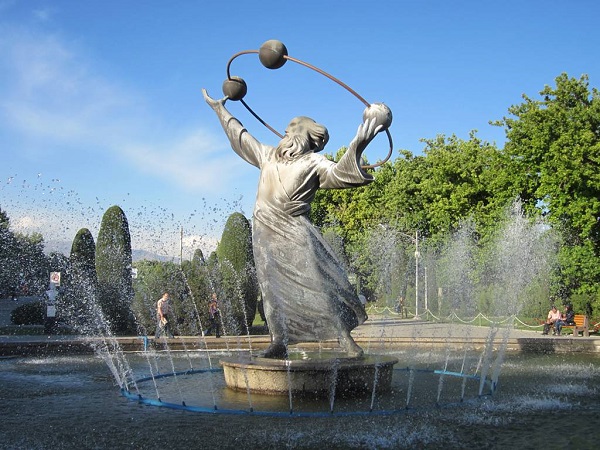
Sayyed Mahmoud Hessaby (February 23, 1903, Tehran &ndash September 3, 1992, Geneva) was an Iranian scientist, researcher and professor of University of Tehran. During the congress on "60 years of physics in Iran" the services rered by him were deeply appreciated and he was called "the father of modern physics in Iran".
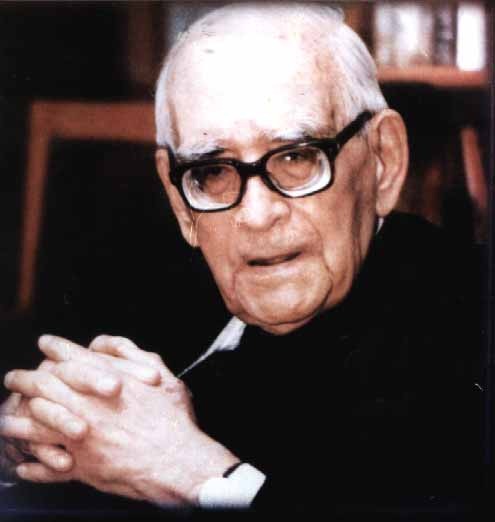
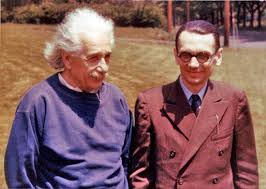
Maryam Mirzakhani (born May 1977) is an Iranian mathematician, and a full professor of mathematics (since 1 September 2008) at Stanford University. In 2014, Mirzakhani became the first woman, as well as the first Iranian, to be awarded the Fields Medal for her work in understanding the symmetry of curved surfaces. Her research topics include Teichmüller theory, hyperbolic geometry, ergodic theory, and symplectic geometry. In 1994 she won a gold medal at the International Mathematical Olympiad (Hong Kong) and then repeated the feat again in the 1995 International Mathematical Olympiad (Toronto), where she was the first Iranian student to finish with a perfect score. Maryam Mirzakhani has become the first woman to win the Fields Medal, the most prestigious prize in mathematics. (Fields Medal mathematics prize won by woman for first time in its history. Maryam Mirzakhani, who was born and raised in Iran, has been awarded the highest honour a mathematician can attain. By theguardian.com, Wednesday 13 August 2014 02.30 BST).
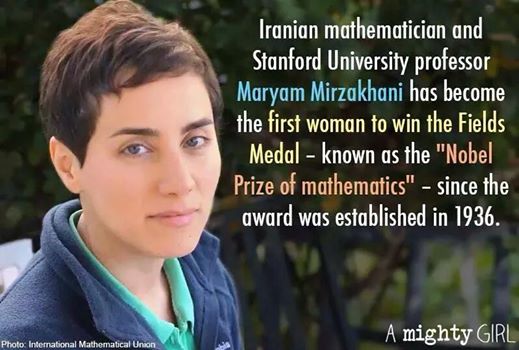
Madjid Samii (born 19 June 1937) is a distinguished Iranian-German neurosurgeon and medical scientist.
Professor Madjid Samii was born in Rasht, Iran, his parents are from north of Iran, Rasht. He got his Doctor of Medicine (M.D.) degree in neurosurgery at the age of 33. He has been the president of the International Society for Neurosurgery and was elected as the founding president of the Congress of International Neurosurgeons (MASCIN) in 2003. Madjid Samii received the "World Physician" award by the north German city of Hanover. Former German chancellor Gerhard Schröder hailed the 70-year-old Samii for his medical contribution to neuroscience as head of the world renowned International Neuroscience Institute (INI), based in Hanover. "You have brought more internationality to the city. People from all over the world are coming to be treated by you," added Schröder in his speech to a high-profile crowd, among them ex-Indonesian president Jusuf Habibie and former German foreign minister Klaus Kinkel. Schröder stressed that Samii has not only brought the world to Hanover but has also made the city world-famous. Deeply touched by the award ceremony, Samii said, "I am only a simple doctor, a great honor was bestowed upon me." He is currently the President of the International Neuroscience Institute (INI) at Otto-von-Guericke-University. In 2007, he received Chinese top award - "Friship Award", from the Prime minister of China for his contribution to the medical progress of the country.
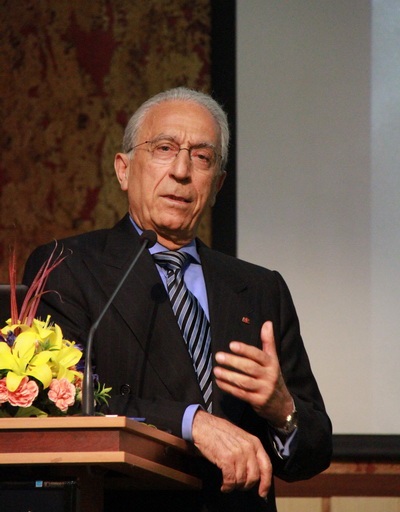
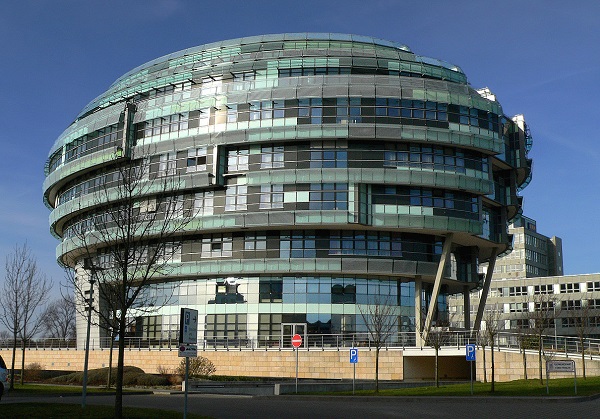
www.gatotravel.com